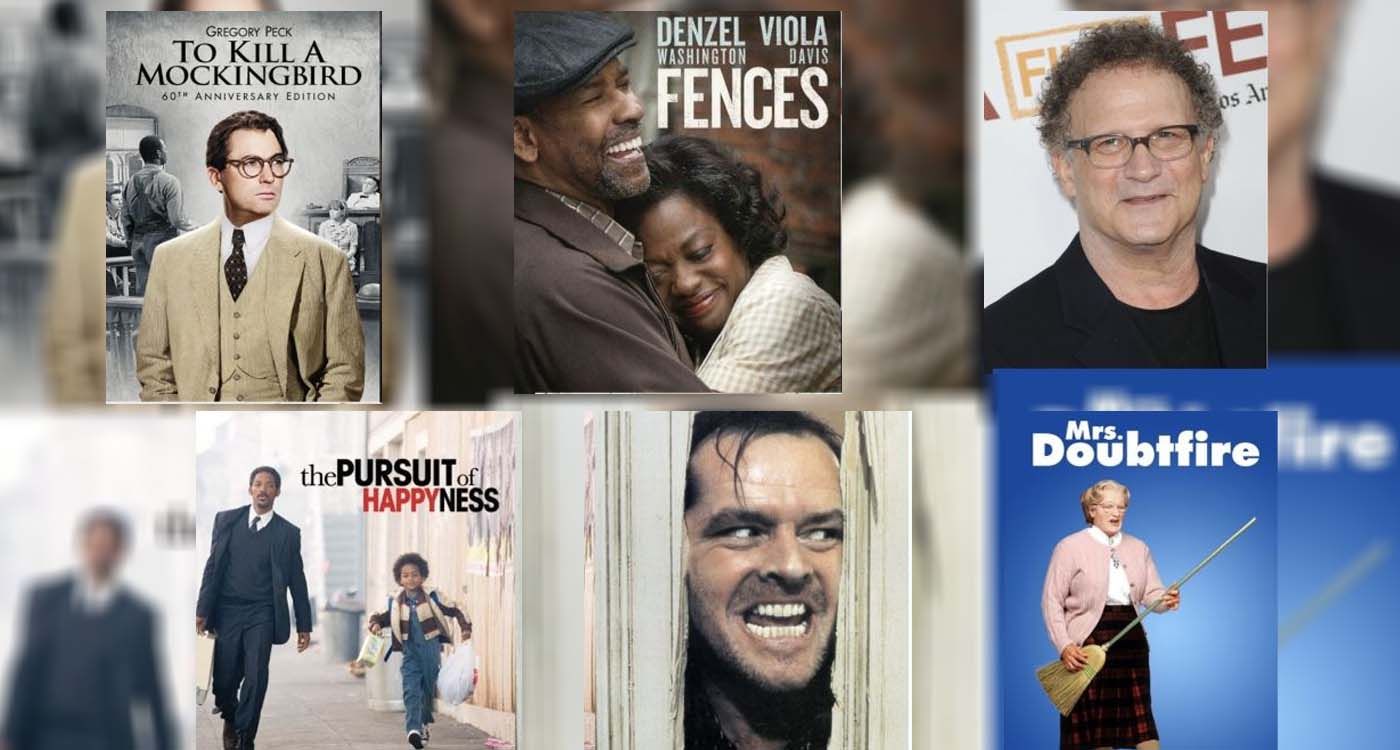
For Father’s Day in Lebanon, This is Beirut highlights six iconic fathers in Anglo-American cinema. From the heroic to the broken, these characters reveal the emotional depth and complexity of fatherhood on screen.
Cinema has long been fascinated by the figure of the father. Sometimes a mentor, sometimes a tyrant, he represents legacy, authority, and at times, profound vulnerability. Through drama, comedy, and even animation, filmmakers have explored the many layers of paternal responsibility—the duty to raise, protect, and love.
To mark Father’s Day, we look back at six unforgettable portrayals that have shaped our view of fathers in film and lingered in the hearts of audiences around the world.
Atticus Finch – To Kill a Mockingbird (1962), portrayed by Gregory Peck
Atticus Finch remains one of cinema’s most iconic and admired father figures. Set in the racially segregated American South of the 1930s, he embodies moral integrity, quiet strength, and unwavering compassion. A widowed lawyer raising two children on his own, he accepts the controversial task of defending a Black man falsely accused of rape. In a world riddled with prejudice, Finch becomes a pillar of justice and humanity.
Through his calm presence and courageous choices, he teaches his children—by example—the importance of empathy, fairness, and standing up for what is right. Gregory Peck’s masterful performance brings to life a deeply human and profoundly dignified vision of fatherhood, marked by restraint, wisdom, and grace.
Chris Gardner – The Pursuit of Happyness (2006), portrayed by Will Smith
Inspired by a true story, Chris Gardner is the portrait of a father’s resilience in the face of relentless hardship. A single dad in 1980s San Francisco, he finds himself without a home, a job, or any financial security—yet remains unwavering in his determination to provide a better life for his young son.
Day after day, Gardner endures hunger, rejection, and the quiet cruelty of poverty. But he refuses to let his son carry the weight of that struggle. In Will Smith’s restrained yet emotionally charged performance, we see a man whose quiet strength and unconditional love become a lifeline. His fatherhood is not heroic in the traditional sense—it’s dignified, persistent, and profoundly human.
Jack Torrance – The Shining (1980), portrayed by Jack Nicholson
A chilling departure from the archetype of the nurturing father, Jack Torrance represents the ultimate domestic threat. In Stanley Kubrick’s iconic adaptation of Stephen King’s novel, the father figure turns from caregiver to predator. Jack, a struggling writer, accepts a job as the off-season caretaker of an isolated mountain hotel. But as winter sets in, a toxic mix of loneliness, alcohol, and supernatural influence pushes him to the edge of sanity—and beyond.
What unfolds is a descent into terror, as Jack becomes a danger to the very family he was meant to protect, particularly his young son, Danny. Nicholson’s electrifying performance captures the terrifying transformation of paternal authority into menace. The role probes the darkest corners of fatherhood—where unresolved frustration, failure, and rage erupt in place of love and guidance.
Marlin – Finding Nemo (2003), voiced by Albert Brooks
Finding Nemo shows that animation can explore fatherhood with subtlety and heart. Marlin, a widowed clownfish, is a worried and overprotective father determined to keep his only son, Nemo, safe at all costs. When Nemo is captured by a diver, Marlin embarks on an epic ocean journey to rescue him.
The film blends humor and emotion to portray a father’s struggle to let go and trust his child’s independence. Through vibrant underwater adventures, Marlin learns to embrace his son’s growing autonomy, making Finding Nemo a touching story about love, courage, and the difficult balance between protection and allowing a child to grow.
Daniel Hillard – Mrs. Doubtfire (1993), portrayed by Robin Williams
When fatherly love collides with legal and societal obstacles, some dads find creative—and unconventional—ways to stay close to their children. Daniel Hillard, a spirited actor and divorced father who has lost custody, embodies this struggle. Determined to remain involved in his children’s lives, he disguises himself as a Scottish nanny and secures a job in his ex-wife’s household.
Behind Robin Williams’ iconic humor and unforgettable performance, Mrs. Doubtfire unfolds a deeply poignant story about a man’s relentless effort to maintain the family bond. The film masterfully blends comedy with tenderness, capturing themes of loss, perseverance, and the enduring need for connection.
Troy Maxson – Fences (2016), portrayed by Denzel Washington
Troy Maxson, once a baseball player, now toils as a garbage collector. Haunted by shattered dreams and the weight of racial discrimination, he raises his son with a rigid discipline, convinced that toughness will protect him from the disappointments Troy himself endured. Based on August Wilson’s acclaimed play, Fences presents a father who is stern, authoritarian, and at times unjust. Beneath that harshness, however, is a man weighed down by a painful and conflicted history.
Denzel Washington delivers a powerful performance, embodying a father whose love is intense but whose way of showing it is fraught with difficulty. The role confronts the unspoken resentments, suppressed anger, and painful legacies that fathers sometimes pass down unintentionally.
From idealized role models to deeply flawed men, from quiet protectors to rebellious jesters, these six cinematic fathers reveal the complex, ambivalent, and profoundly human realities of fatherhood. This Father’s Day, cinema reminds us that fatherhood is more than bringing life into the world—it is a journey of learning to love, guide, let go, and sometimes, to heal.




Comments